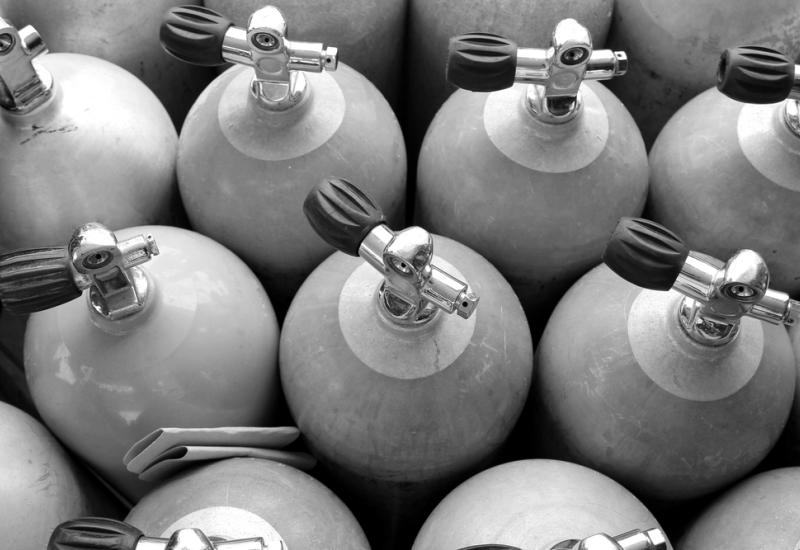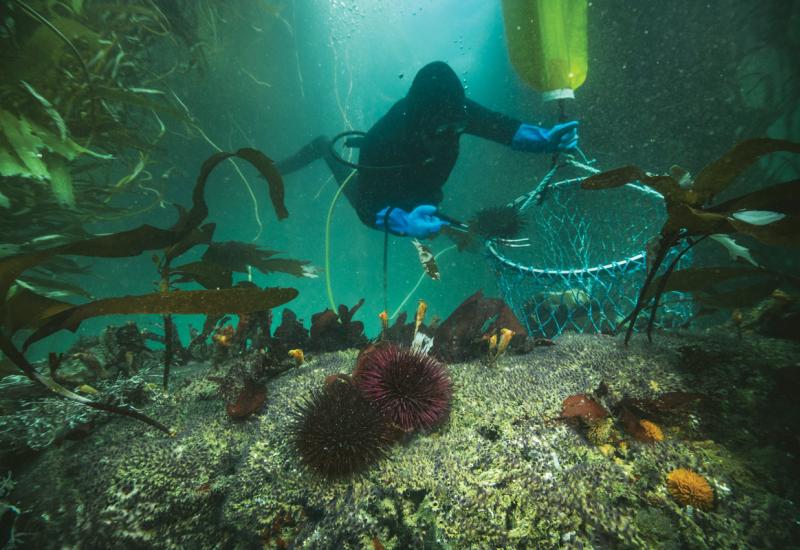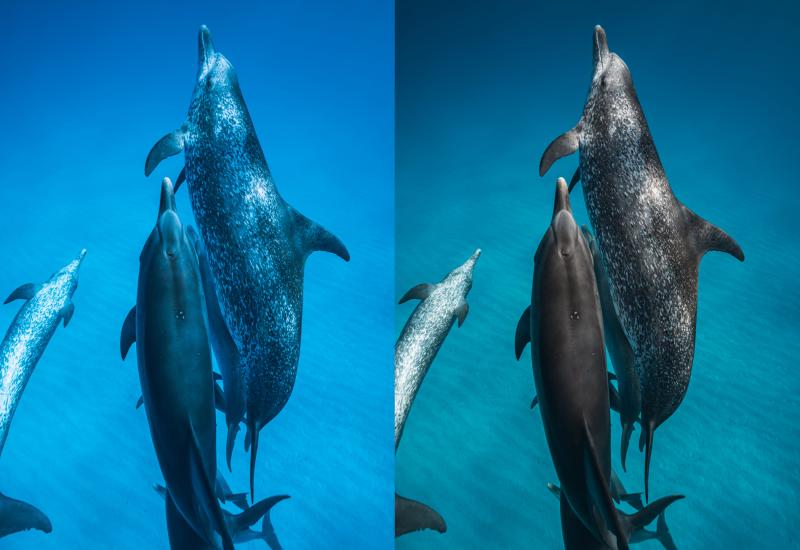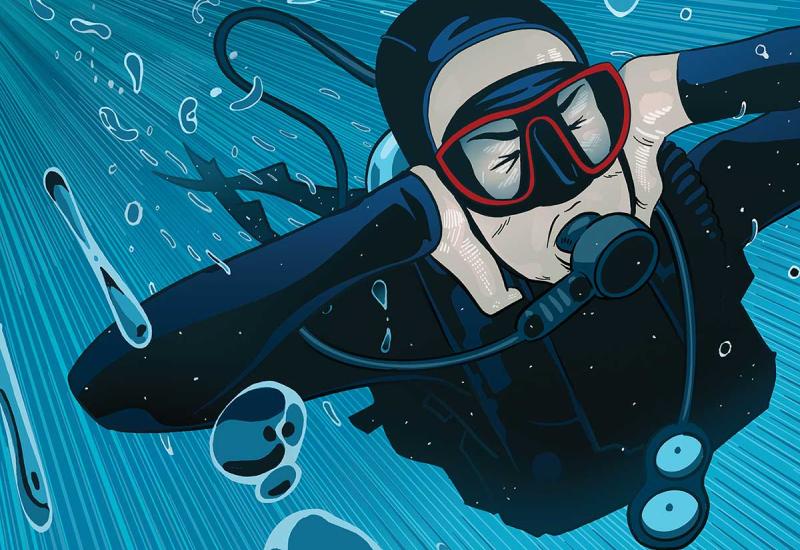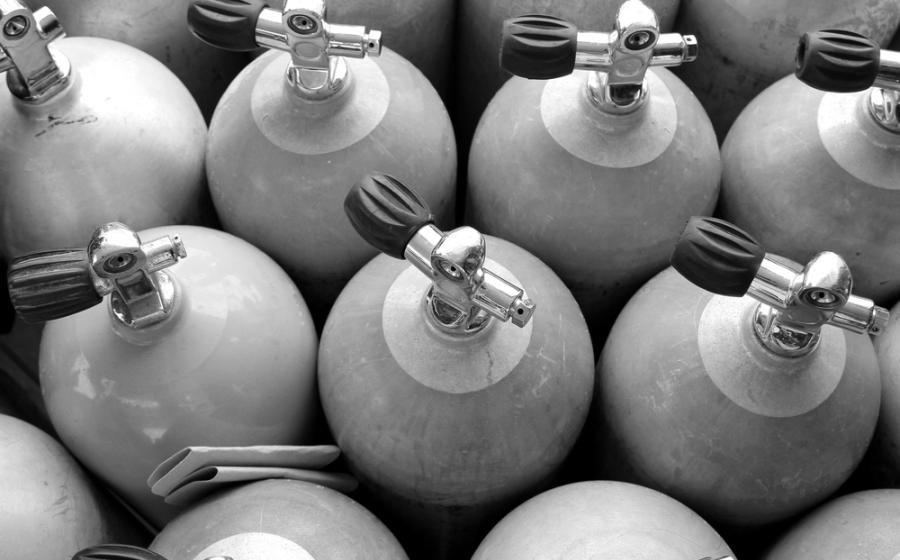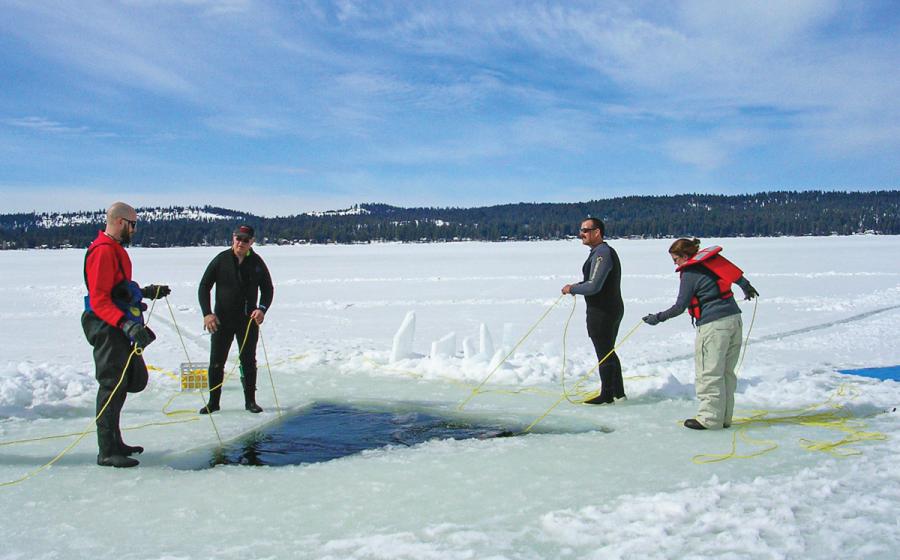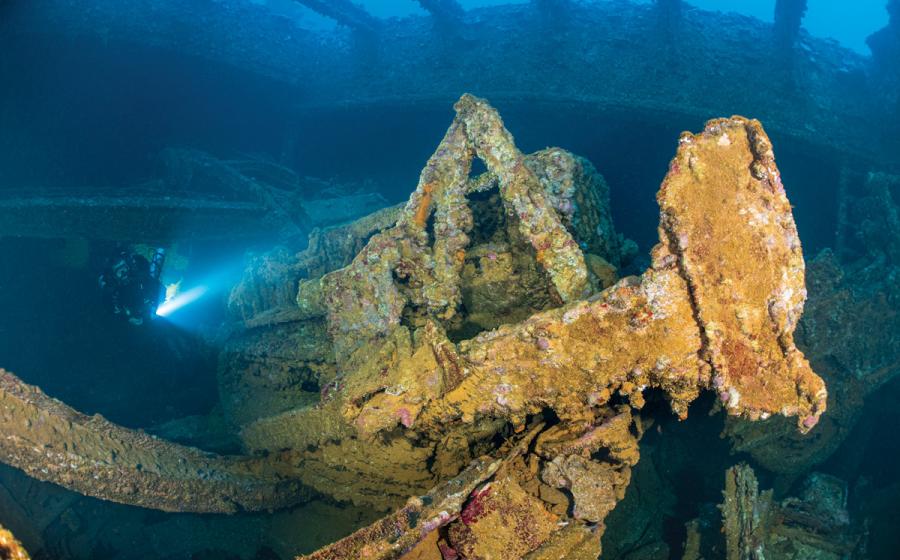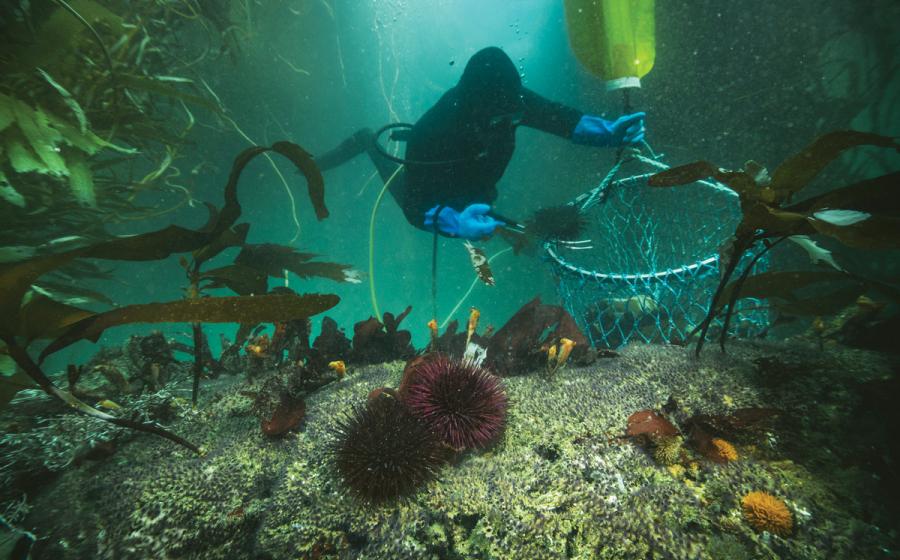These Dive Pro Courses Put Ocean Conservation First
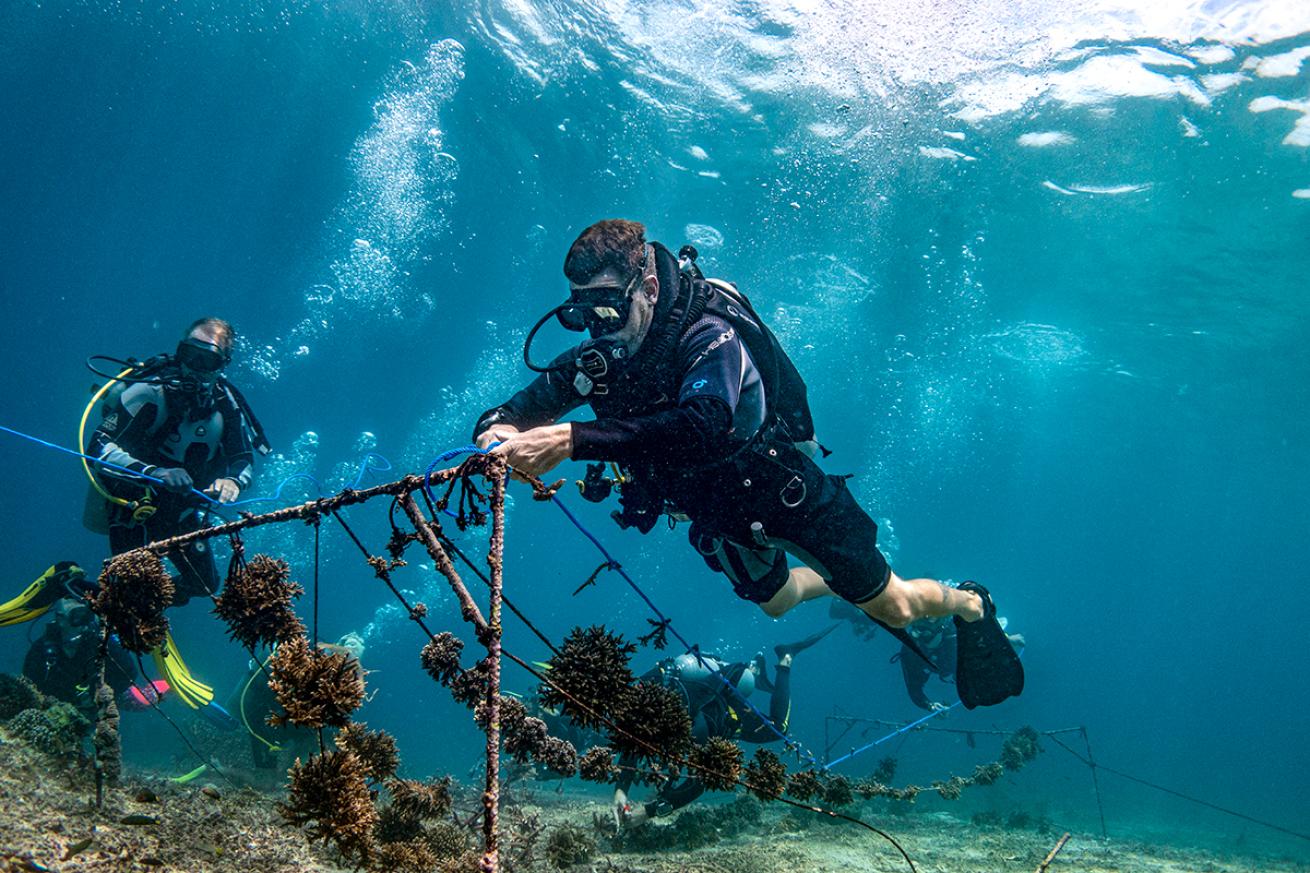
Courtesy Nick Tringham/Blue CornerDivers with Blue Corner Dive tend to an artificial reef in Indonesia.
If the COVID-19 pandemic has taught us anything, it’s that we’re enmeshed in a finely woven, incredibly fragile and interconnected web on this vast planet—one with teachable moments everywhere.
As dedicated scuba divers, we know opportunities to learn exist on every single dive. That’s why it’s heartening to see dive shops from Baja to Bali working to incorporate conservation into specialty and instructor courses to send better-prepared and more educated dive industry professionals out into the world to advocate for marine environments.
After all, the scuba diving world—and tourism more broadly—no longer has the luxury of choice when it comes to protecting the environment.
“Opportunity to Inspire”
Jay Clue had been scuba diving in many of the remote corners of the world before he landed on the Baja California Peninsula in 2016 for what he originally planned to be a brief stop.
“I was blown away by the abundance of life just a short boat ride from the marina in a touristy place like Los Cabos,” says Clue, founder of Dive Ninja Expeditions in Cabo San Lucas, Mexico. His shop’s recently launched Ninja PADI IDC, an eco-focused Instructor Development Course program, offers six conservation-oriented workshops in addition to its other IDC curriculum at no additional charge.
The inspiration came from a PADI Whale Defender specialty course Clue designed last year after finding his guests on dives and whale-watching tours asking more and more questions about the humpbacks, gray whales and other cetaceans that regularly visit the Baja Peninsula during the winter. The coastline here is home to a third of the world’s whale species and almost 40 percent of its marine mammal species.
Dive Ninja Expeditions’ 14-day IDC, led by platinum course director Anders Heegaard, takes things several steps further, incorporating the Whale Defender specialty instructor course in addition to add-ons like a workshop with esteemed Mexican shark scientist Dr. Frida Lara on how to work responsibly with sharks and rays.
“The whole idea is that these students will go on to be dive professionals, whether divemasters or instructors,” Clue says. “They will have the opportunity to inspire thousands of people around the world.”
More than ever, making sure the next generation of dive professionals is focused on marine conservation is a sentiment shared in dive destinations worldwide, especially in biodiversity hotspots like Bali, Indonesia, where regular divers know how much there is to lose.
For longtime friends and Blue Corner Dive shop co-owners Cody McDonald and Andrew Taylor, nearly two decades visiting, diving and living in Indonesia inspired their own eco-minded courses, offered from their main shop in Nusa Lembongan.
McDonald and Taylor, a marine biologist who studied coral restoration in Australia, designed the Marine Conservation Internship for divemasters looking for in-depth training on marine conservation and marine ecology.
Divided into four six-day modules that can be taken individually or as a whole, the courses cover topics like mantas and sharks, reef health monitoring and coral reef restoration (the shop has several nurseries on degraded coral reefs where students harvest coral for transplantation). They include at least 10 dives per week. Having a divemaster certification isn’t required to take part, but the modules can be combined with the PADI Divemaster course for students wanting to go that route, McDonald says.
Résumé Builder
When you love the ocean, you never stop advocating for it. In retirement, Alex Brylske, a former professor at the College of the Florida Keys in Key West, is course leader and developer of the Eco Pro Training course at Sea Experience in Fort Lauderdale, a popular continuing-education add-on to the IDC program.
Brylske laments the missed opportunities to promote marine conservation that he says are rampant in the dive industry. The traditional instructor training process, he says, was never designed to take into account the complexities of the marine environment. But with the world changing, we must too.
“We are now at a state where the environment is in such a sad state of affairs something has to happen,” he says. “There’s no better community or opportunity to convey that idea to than people who go underwater to see marine environments.”'
He uses a common coral reef denizen, the parrotfish, as an example of why it’s more important than ever for dive industry professionals to know more than the basics.
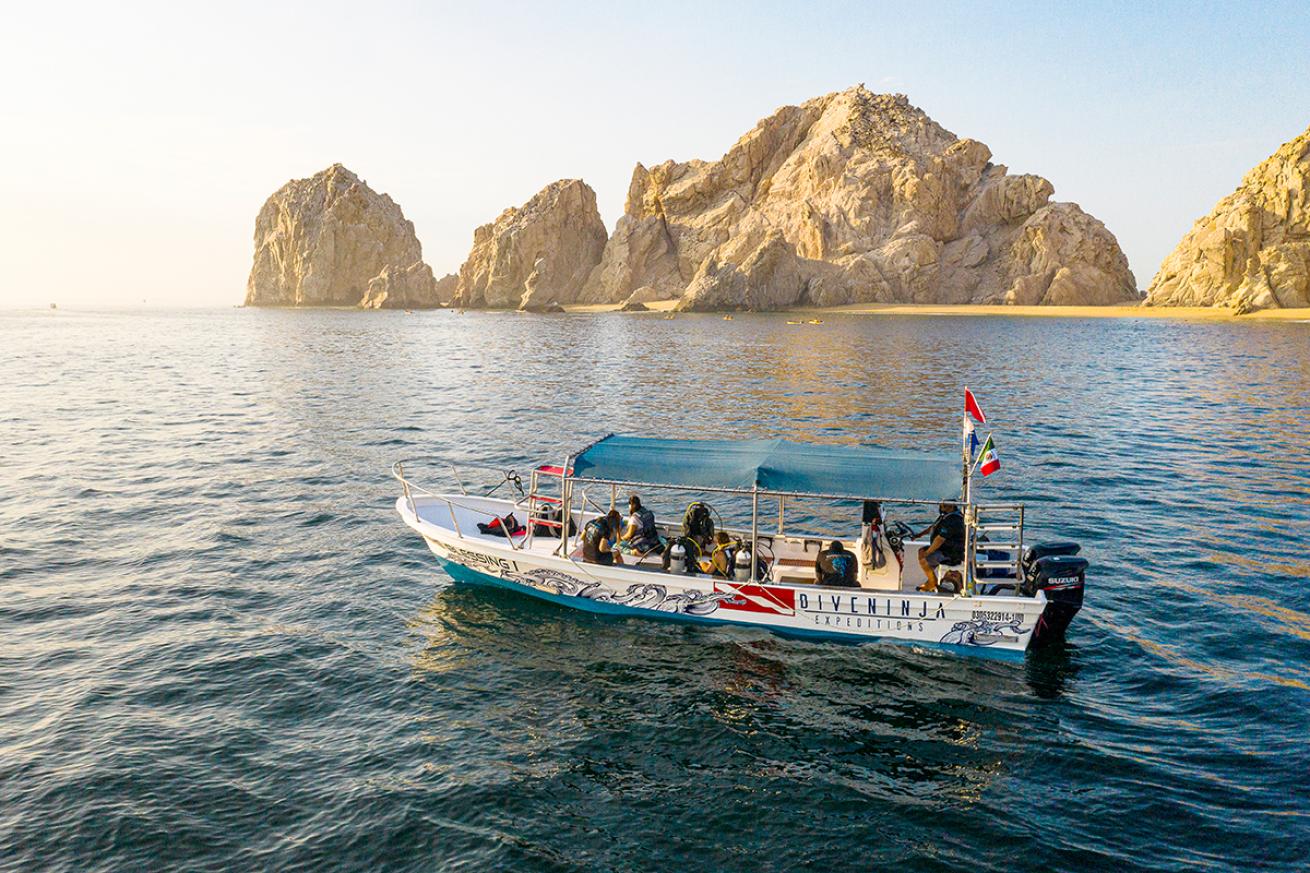
Jay Clue/Dive NinjaA Dive Ninjas expeditions boat off of Cabo San Lucas, Mexico.
“Every divemaster in the world knows that when a guest asks why a parrotfish is chomping on the reef to answer that it’s because they’re eating algae,” Brylske says. But keeping things so simple does everyone a disservice.
Moments like that can be a “launchpad for getting into the issues and not just answering the questions,” he says. “Our people are trained to take that teachable moment and explain what’s really happening. Herbivory is an important part of the ecology of the reef, and one of the biggest problems of reefs around the world, outside of the U.S., is that parrotfish are being targeted for food. We can teach divers to never buy them if they see them on the menu at a restaurant.” Sea Experience’s intensive seven-day Eco Pro course is not an IDC, but a continued environmental learning course that helps students connect to the marine environment and inspire those they teach to advocate for it too.
The course’s seven modules, all taught by Brylske, delve into coral reef ecology and restoration as well as conservation and ecotourism topics as they relate to sharks. Other modules include one on sustainable marine tourism trends and how to improve the customer experience, as well as a Reef Check EcoDiver module, during which students survey the substrate, identify fish and analyze their research. Course time is spent both in the classroom and on South Florida’s reefs.
The idea, Brylske says, is that Eco Pro graduates will become more knowledgeable about the interconnectivity of the marine environment than their peers, and therefore more marketable to potential employers.
“We aren’t just teaching people how to dive,” he says. “We’re teaching them what’s needed for a successful career. If you want a career, this is what you need to be able to do.”'

